What Constitutes a Criminal Record?
In Canada, a criminal record includes information about all criminal convictions and sentences, including fingerprints and DNA, stored in a database maintained by the Royal Canadian Mounted Police. Such records can have significant long-term consequences on employability and international travel. However, individuals convicted of criminal offenses can apply for a record suspension, previously known as “pardons,” through the Parole Board of Canada.
Eligibility and Waiting Periods:
To apply for a record suspension, the sentence for the conviction must have concluded. There’s a ten-year waiting period for indictable offenses and a five-year waiting period for summary conviction offenses after the completion of the sentence. For instance, someone convicted of theft under $5000 in 2015 becomes eligible for a suspension five years after paying the fine in full.
Application Process and Costs:
Applying for a record suspension costs $631, and it involves applying to have specific convictions suspended. A record suspension doesn’t erase the record but moves it to a separate database. The Minister of Public Safety must approve any disclosure of suspended records, except in exceptional circumstances related to justice administration, safety, security, or identifying a deceased person.
Discharges and Fingerprints/DNA:
Individuals discharged instead of convicted do not need to apply for a suspension. Discharge records are automatically removed from the RCMP database after one or three years, depending on the type of discharge. However, fingerprints taken during arrest will remain, even with a record suspension, though they may be removed from local databases.
Ineligible Offenses and Suspension Approval:
Certain offenses, primarily sexual offenses involving young victims, are ineligible for record suspension. Approval for a record suspension depends on good conduct, the potential benefit to the individual’s rehabilitation, and not bringing the administration of justice into disrepute. If an application is refused, the applicant can reapply after a year.
Revocation of Record Suspension and Legal Assistance:
Record suspensions can be revoked under specific circumstances, such as new convictions or deceptive statements in the application. While requesting a record suspension is generally a straightforward process, individuals can seek legal advice for specific concerns regarding their criminal record suspensions. The Government of Canada provides comprehensive resources to guide applicants through the process.
